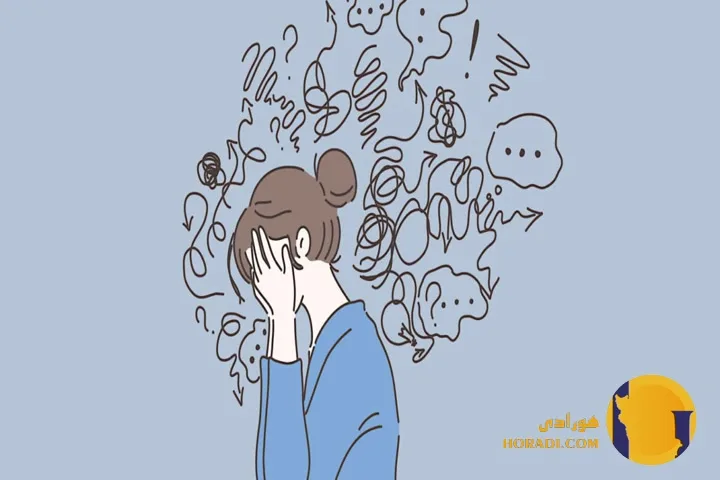
how to deal with anxiety in yor 20s
Anxiety in your 20s can feel overwhelming because this decade is full of big transitions—graduating from school, starting careers, navigating relationships, and learning to become independent. Many young adults face uncertainty about their future, financial stress, social pressure, and the constant comparisons fueled by social media.how to deal with anxiety in yor 20s
If left unchecked, anxiety can take a toll on your mental health, productivity, and overall quality of life. But learning how to manage it early can give you the tools to live with confidence and resilience as you move forward.
Understanding Anxiety in Your 20s
Anxiety in your 20s is not unusual; in fact, it is one of the most common challenges people face during young adulthood. At this stage, your brain is still developing, particularly in areas that regulate emotions and decision-making. Combine that with the stress of adult responsibilities, and it’s easy to see why many people feel anxious. Understanding that anxiety is a natural response to stress—and not a sign of weakness—can be the first step in addressing it.
Common Triggers of Anxiety in Young Adults
Career Pressure and Job Uncertainty
Finding a job, keeping one, or choosing the right career path can be a huge source of stress. Many in their 20s worry about being left behind or not living up to expectations.
Financial Stress and Independence
Paying bills, managing student loans, and learning how to budget are new challenges. Financial uncertainty is one of the biggest drivers of anxiety in this decade.
Relationships and Social Comparisons
Romantic relationships, friendships, and family expectations can all create stress. On top of that, social media often magnifies the feeling of “not doing enough” or “falling behind” compared to peers.
Identity and Future Uncertainty
Your 20s are about discovering who you are and what you want. That sense of uncertainty can create constant pressure and worry.
Healthy Coping Strategies for Anxiety
Prioritize Self-Care and Routine
Building a routine can ground you. Prioritize sleep, exercise, balanced meals, and time for relaxation. Physical health directly impacts mental well-being.
Practice Mindfulness and Meditation
Mindfulness practices like meditation, deep breathing, or yoga can reduce anxiety by helping you stay present instead of worrying about the future.
Break Goals Into Small Steps
Big life goals can feel overwhelming. Break them down into smaller, achievable steps. This reduces the sense of being stuck and gives you a feeling of progress.
Limit Social Media Use
Constant scrolling can worsen anxiety by creating unhealthy comparisons. Setting boundaries with technology can free mental space and reduce stress.
Building a Strong Support System
Talking About Anxiety
Opening up to trusted friends, family, or mentors can lessen the burden. Talking about struggles makes them feel more manageable.
Professional Help
Therapists and counselors can help develop coping strategies tailored to your specific triggers. Seeking professional help is not a weakness—it’s an act of strength.
Support Groups
Joining groups where others share similar struggles can provide comfort and show you that you’re not alone in your journey.
Practical Lifestyle Changes to Manage Anxiety
Exercise as a Stress Release
Even a short daily workout can release endorphins, which are natural mood lifters. Walking, jogging, or dancing are simple ways to relieve anxiety.
Journaling Your Thoughts
Writing down worries helps organize them and prevents them from spinning endlessly in your head. Journaling can also help track progress over time.
Balanced Diet and Hydration
Food impacts mood. Eating whole foods and staying hydrated can improve mental clarity and reduce anxious feelings.
Sleep Hygiene
Poor sleep can amplify anxiety. Set a consistent bedtime, limit screen time before bed, and create a calm sleeping environment.
Changing Perspective on Failure and Success
In your 20s, it’s easy to feel like failure means the end of the road. Reframing failure as a lesson and growth opportunity can reduce anxiety about mistakes. Remember that success in life rarely happens overnight—it is built over time with persistence and patience.
Managing Anxiety in Work and Study Environments
Learning how to balance work, studies, and personal life is key. Time management tools, task prioritization, and breaks can reduce stress. Setting healthy boundaries at work or school also prevents burnout.
When to Seek Professional Help
Anxiety becomes a serious issue when it interferes with daily life—making it hard to function at work, in school, or in relationships. If you find yourself constantly overwhelmed, unable to sleep, or experiencing panic attacks, professional support from a psychologist or psychiatrist may be necessary. Treatment options like cognitive behavioral therapy (CBT) or, in some cases, medication, can provide relief.
Embracing Growth and Resilience
Your 20s are a decade of trial and error, and anxiety often comes with the territory. But developing resilience during this time builds strength that lasts a lifetime. Learning to manage stress, practicing self-compassion, and recognizing that you are not alone can make the journey less daunting.
Final Thoughts on how to deal with anxiety in yor 20s
Dealing with anxiety in your 20s is challenging but also transformative. This stage of life comes with unique pressures, but it also offers the chance to build healthy habits and coping strategies that will benefit you for decades. By understanding your triggers, adopting practical tools, and reaching out for help when needed, you can turn anxiety from a paralyzing force into a stepping stone for personal growth.









































